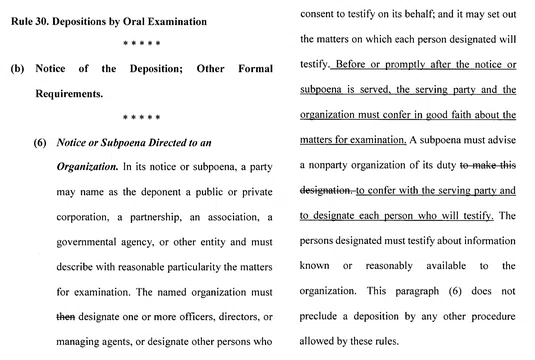
In May 2020, West Publishing and Thomson Reuters filed a copyright action against ROSS Intelligence LLC, alleging that ROSS (through a third party) scraped content from WestLaw to start its own Artificial-Intelligence-based legal research platform. (ROSS has since ceased operations but persists solely to litigate this case.)
Down the line, I imagine the case may raise some interesting questions about AI and copyright. For example, what are the copyright implications of ROSS's use of Westlaw's copyrighted compilation of otherwise public domain materials to train an AI? Isn't that fair use (talk about transformative!)? If not, what are the damages? And so on.
For now, ROSS has moved to dismiss on the ground that West failed to …







